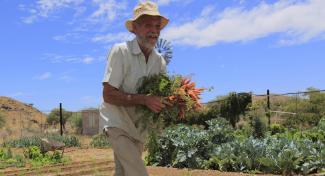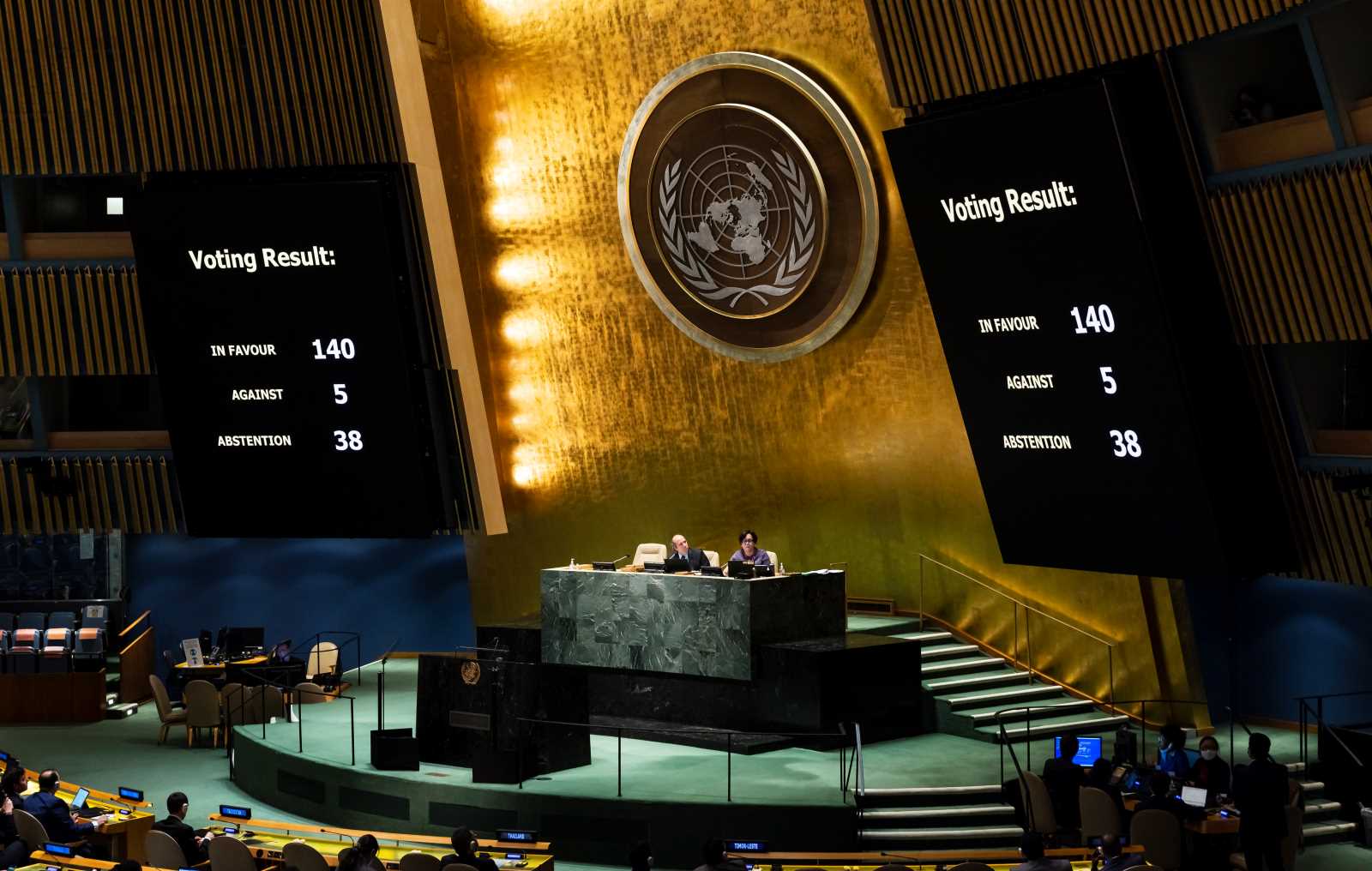Colonial legacy
No land in sight

The formerly colonised people of Namibia expected independence not just to bring a significant improvement in their standard of living but also to transform the socio-political and socioeconomic setting. Fair distribution of land figured prominently in those expectations. The need to redistribute wealth was obvious.
However, decolonisation brought mainly political sovereignty. The government could only change the economic scenario to a limited extent. It had to respect constitutional principles that had been pre-defined before independence. The body of law that was thus introduced did not reflect what the majority of the people consider right and wrong. On the contrary, it protects existing private property – property that in many cases was acquired in the course of colonial injustice, not least including land seizures and dispossession.
Many Namibians thus see the country’s law as protecting the rights of privileged minorities, whose standing has hardly changed. Landowners’ property rights are safeguarded, but the moral and ethical questions of how and when their property was acquired were never tackled.
Territorial reorganisation
There is no history of irrevocably formalised control over land, which makes things even more complicated. Southern Africa – as other world regions – experienced extensive migration, with newcomers displacing other people, even before the European colonial powers arrived. Land had been re-occupied on various occasions. At some point in time, each ethnic group in Namibia – with the exception of the Bushmen - is known to have migrated to what is now the country’s territory. In most cases they did not claim land use without any force. There is an aphorism according to which treason is a matter of date. That might also be said of the right to “ancestral” land.
This is no justification for creating a convenient loophole for the descendants of European colonialists. They must face up to the realities and consider the consequences of colonial subjugation. In 2015, Germany finally acknowledged that the warfare against Herero and Nama people by German soldiers between 1904 and 1908 constituted acts of genocide. The descendants of these two ethnic groups had to fight long and hard to secure that admission.
Nonetheless, the search for permanent solutions to the land question remains complex, difficult and unresolved. The first – and so far only – National Land Conference was held in 1991. It discussed ways to redistribute land in the fairest and most appropriate way and concluded that the historical complexities made a full restitution of land impossible.
Land reform with contradictions
The climate is harsh, making an economically viable land reform difficult. Two-thirds of the national territory is classified as semi-arid and a quarter as arid. Around 44 % of the land is used for fenced ranches which are privately owned. It mostly serves to graze livestock. About 60 % of this commercially used land has an average annual precipitation of less than 300 mm. It is owned by fewer than 5,000 persons, most of whom are white. Many are German-speaking, and some are foreigners.
Only around eight percent of Namibian land has an average annual precipitation of at least 500 mm that is needed for non-irrigated farming. Most of this land belongs to the 43% of the territory in communal use, the former “native reserves”. Due to individual fencing as a de facto privatisation, however, less and less of that land remains in collective use.
This state of affairs clearly contradicts the resolutions of the 1991 Land Conference. At present, however, authorities tend to tolerate such unlawful appropriation of land. A considerable number of the land grabbers, after all, are members of the higher public administration or belong to the party leadership. If the government and local traditional authorities continue to condone and even engage in such wrongdoing, the situation of rural communities will deteriorate further, accelerating the exodus from rural areas.
So far, land reform has been halting and slow. The government has wasted a lot of time on legal and administrative debates. There is no clear political strategy for the transfer of land and the resettlement of people with long-term prospects of sustainable livelihoods.
Redistribution is based on a principle called ”willing seller – willing buyer”. It gives the government a preferential right to buy farms at market value. The land is supposed to be reallocated to historically disadvantaged people, but that has rarely happened.
What has happened is that members of the new political elite got precedence as buyers. As early as the mid-1990s, observers remarked sarcastically that land reform had been accomplished since most members of the cabinet now owned private farms .
Only very little land has been purchased for the purpose of accommodating the landless. By the mid-1990s, the authorities had bought only around 100,000 hectares. By the turn of the millennium the figure had risen to 341,000 hectares of 54 farms.
The results of resettlement projects have been sobering. Most new settlers remain dependent on food aid. They did not get the support they needed to become self-sufficient and remained unable to achieve the minimum objective of secure livelihoods. All too often, those who were resettled kept relying on government support. The rural infrastructure has collapsed. Strikingly, land reform is neither mentioned in Namibia’s official poverty reduction strategy, which was approved by the cabinet in 1998, nor in the National Poverty Reduction Action Programme for 2001 to 2005.
Land politics
Much will depend on how the black elite at the helm of the government will manage to reduce the glaring social inequalities of the new post-colonial class society. To think that a land reform will resolve the issue is quite common – but mistaken. This idea is hard to dispel given that the unfair distribution of land is a colonial legacy. Major successes in poverty reduction, however, would reduce the symbolic significance of land and ease frustration about slow change.
In 2012, SWAPO declared the land question to be a priority. Since then, public discourse has been marked by mutual recriminations. The government accuses the commercial farmers of sabotage for refusing to sell their land at acceptable prices. In the meantime, the commercial farmers’ association has published figures that show that the redistribution of land is very much on track to meet the government’s targets. Tinkering with figures, however, is not a good way to deal with a deeply emotional issue that is linked to senses of identity as well as impotence. The government is not handling these links well. It is high time it took them into account.
A second national land conference was originally scheduled for 2016. It was half-heartedly prepared and finally postponed and is now supposed to take place later this year. It is expected to be anything but harmonious. Most likely, clashes of interest will become evident.
The current bilateral talks between Germany and Namibia reveal differences concerning land questions too, moreover. At present, Germany’s Federal Government refuses to recognise land distribution as a means of compensation for the consequences of the genocide committed and does not want to fund respective measures. It is indisputable, however, that the present distribution of land is basically a result of German colonial rule. It is a colonial legacy.
In view of growing dissatisfaction among sections of the people, Namibia’s government has indicated it is prepared to step up a gear. Among other things, it plans to take a closer look at some constitutional clauses, re-assessing whether land transfers must always be voluntary, for example.
Henning Melber is director emeritus of the Dag Hammarskjöld Foundation in Uppsala, a senior research associate of the Nordic Africa Institute in Uppsala und an extraordinary professor at the University of Pretoria and the University of the Free State
in Bloemfontein. He has been a member of SWAPO since 1974.
henning.melber@dhf.uu.se










